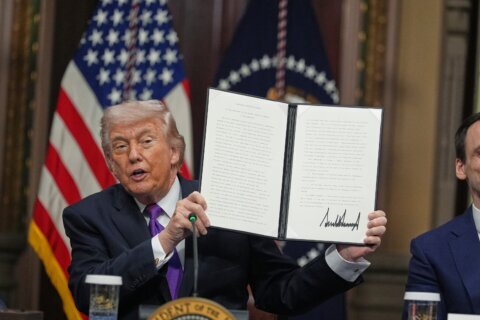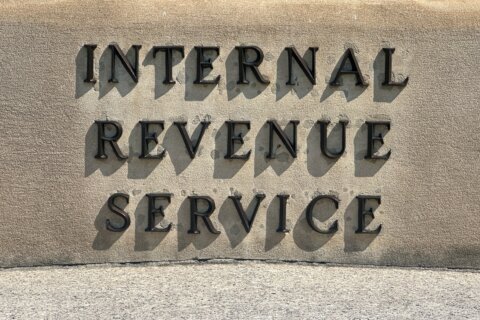The D.C. office market is struggling with record vacancy rates, but there is one tenant D.C. can always count on: Government affairs.
And demand for office space from those tenants is growing.
“We just looked at the big three — that’s the lobbyists for hire, the corporate government affairs groups, and associations,” said Tammy Shoham, research director at commercial real estate firm JLL, which focuses on the D.C. market. “And of those three groups, there are over 1,500 entities here in D.C.”
That number does not count all of the think tanks and higher-education institutions and other private-sector companies that have teams in D.C. focused on government relations.
National lobbying spending hit a historical high of $4.2 billion in 2023, and JLL said there are no signs of it slowing.
Office space in D.C. is essential to these organizations — lobbying is not something you can do on a Zoom call.
“Advocacy is an in-person activity,” Shoham said. “These are conversations that you’re having that are nuanced and relationship-driven.”
Government affairs leasing in D.C. is expected to grow between 2024 and 2026, regardless of who wins the next election. Government affairs leasing grew by 19% during the first two years of the Trump administration, and by 43.2% during the first two years of the Biden administration.
Small government affairs groups that are new to D.C. also tend to not only stay, but grow their operations and office space needs over the years.
Shoham said lobbyist and similar groups tend to lease smaller offices with an average size of 2,000 to 5,000 square feet, but they also tend to favor prime, Class A or trophy office spaces.
“You have government affairs groups that frequently host their clients and their partners in their office space in D.C., so the quality of the space matters,” she said. “They want space that impresses.”
Even though D.C.’s commercial office space is not showing signs of recovery, government affairs has always somewhat bulletproofed D.C.’s office market from significant downturns.
“The D.C. office market is really unique, in that there are several types of tenants, government affairs being one of them, that just have to be here. And it’s not just government affairs either. It’s the contractors and the law firms and the nonprofits. And what they do is it gives the D.C. office market this cushion of activity that other office markets just don’t have,” Shoham said.
The sectors that spend the most on lobbying — pharmaceuticals and technology — also face the most ongoing change in their industries, and both have a significant presence in D.C.
Get breaking news and daily headlines delivered to your email inbox by signing up here.
© 2024 WTOP. All Rights Reserved. This website is not intended for users located within the European Economic Area.








